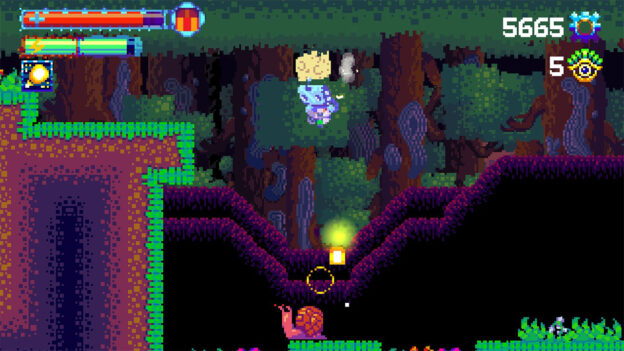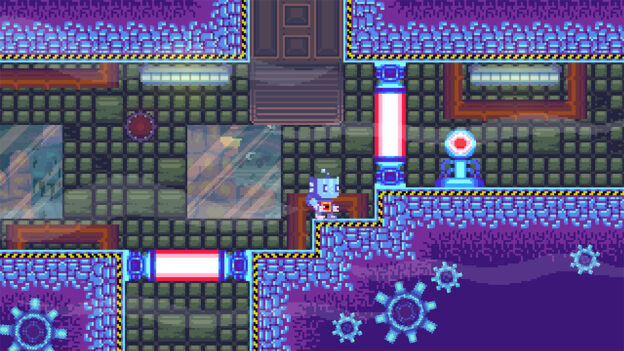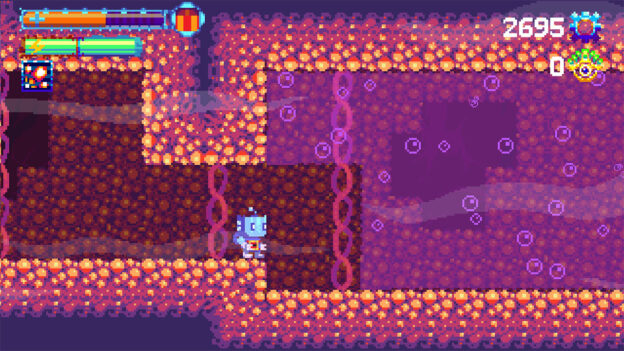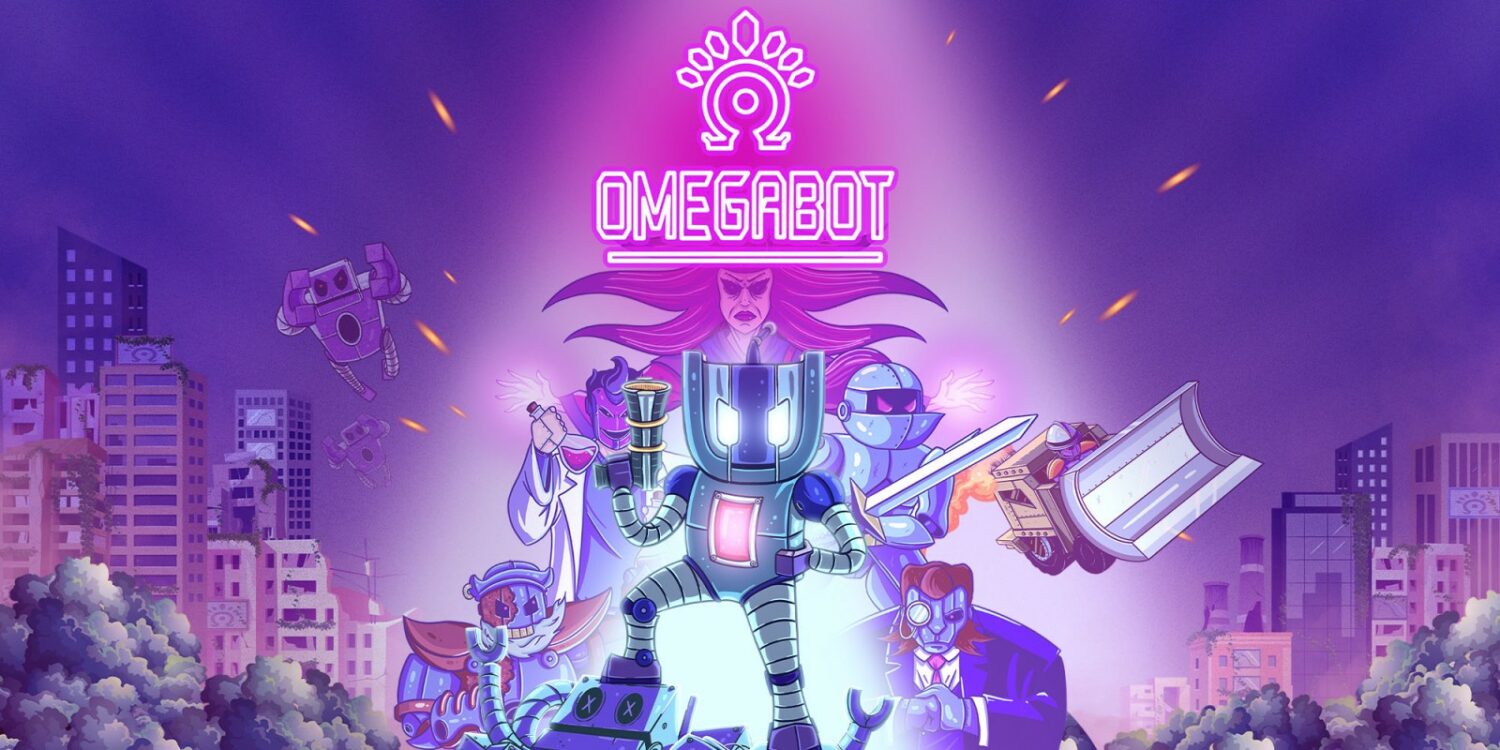OmegaBot is an action platformer from solo developer Simon Carny. It features run-and-gun gameplay and platforming perils set in a colorful world overrun by robots. Let’s find out what makes it tick.
The story involves a post-apocalyptic world in which humans have been turned into androids. A short introduction welcomes us to this world, in which one brave little robot named OmegaBot sets out to save humanity. Ah, the irony.

Gameplay involves typical genre tropes such as perilous pits, moving platforms, and destructive objects like spikes. There are plenty of similar titles out there, but OmegaBot manages to combine a few neat aspects that keep it feeling like a fresh homage, rather than “just another platformer.”
For example, although your weapon holds unlimited ammunition, it comes with a finite charge. In other words, an energy bar that depletes as you shoot highlights how much charge remains. It refills automatically, but it means you can’t just stand there shooting wildly; you’ll want to make the most of your weapon so you’re not left stranded. Once your energy drains completely, you’re left vulnerable for a few seconds while it fully recharges.
You can also upgrade your weapon with an unlockable new firearm at the end of each level. These devices bring new options, like more firepower at the cost of a slower rate, but you can easily switch between them at your leisure. Other gameplay factors add to the experience, like an unlockable double jump. You can also shoot downwards to move across larger gaps in a “floating” kind of way. This move was particularly useful once I got the hang of it.

Other enhancements come via a floating fortress run by a human escapee. Between levels, you can visit this safe haven to upgrade your energy, health, or robo-suit. These come at the cost of collectibles littered around the levels, including some special hard-to-reach items that add an extra incentive for replay. It’s a little like collecting the Star Coins in every Mario level, although there’s no official checkbox to say you’ve found them all.
The graphics are neat, with a colorful retro style that looks like a collaboration between Mega Man and Sonic the Hedgehog. It actually makes sense when you consider those games also sported robot-influenced plots. Sprites and backgrounds use an effective shaded blurring technique that also reminds me of Sonic’s original 16-bit adventures. In short, it looks great. A lot of foreground elements are destructible, from grass and lamp posts to signs and garbage bins. This is a nice touch that I constantly employed with relish for some reason, despite it having no real impact on the actual game. Hey, it’s the little things that make life interesting.

There are only a couple of minor downsides to OmegaBot. Firstly, the text could use some love in the editing department; noticeable typos and errors present a less polished appearance. The other factor is the difficulty level, which is set quite high by default. There’s no option to set your preference, so being thrown in the deep end could dissuade casual gamers. Persistence paid off in my case; after finally making it through the first area, I found subsequent levels less taxing. Had I not been reviewing this title, though, I may have called it quits sooner.
Overall, OmegaBot is a fun platformer that serves as a strong debut from this solo developer. The gameplay feels like a fresh homage rather than a mere clone, with interesting characters and terrifically retro graphics.
Review: OmegaBot (Nintendo Switch)
Very good
OmegaBot is a fun platformer that serves as a strong debut from this solo developer. The gameplay feels like a fresh homage rather than a mere clone, with interesting characters and terrifically retro graphics.


